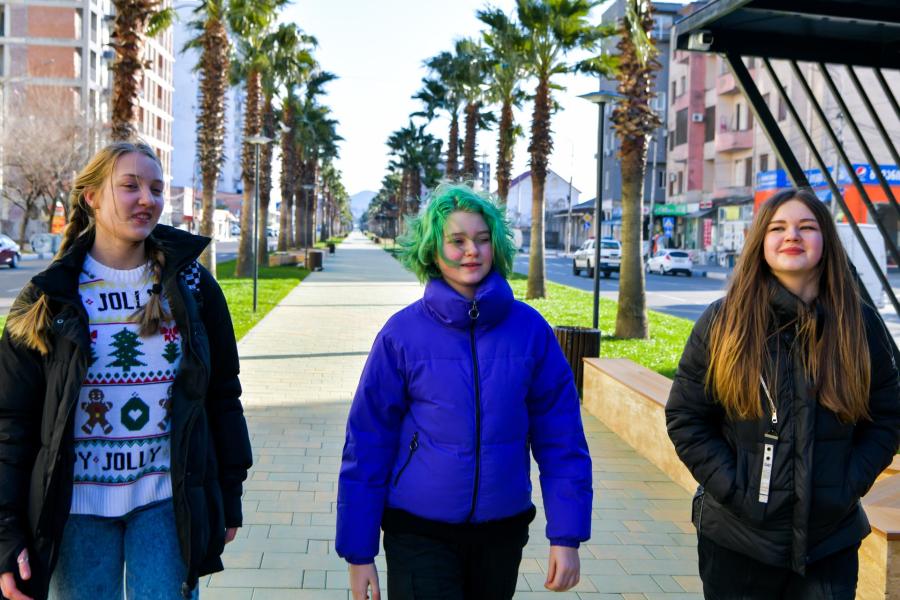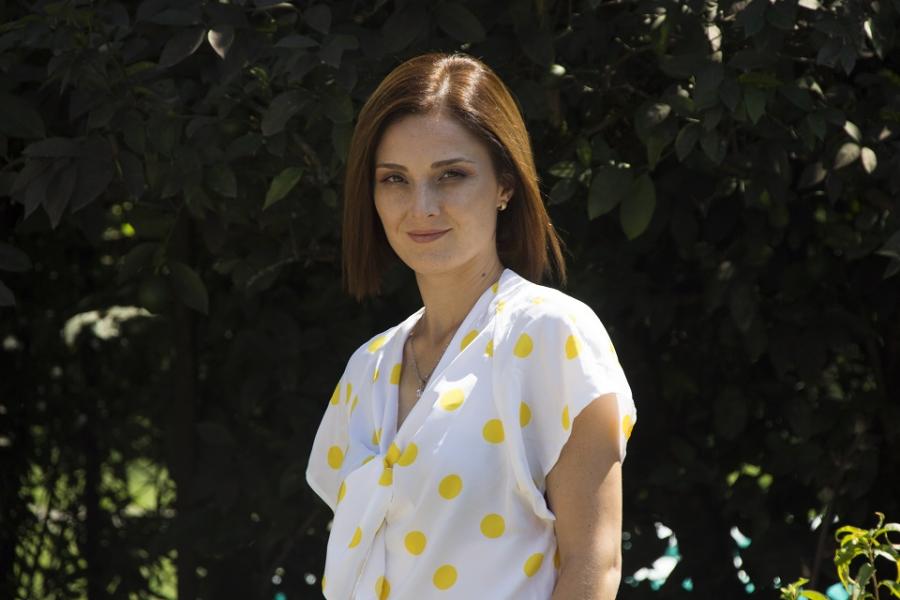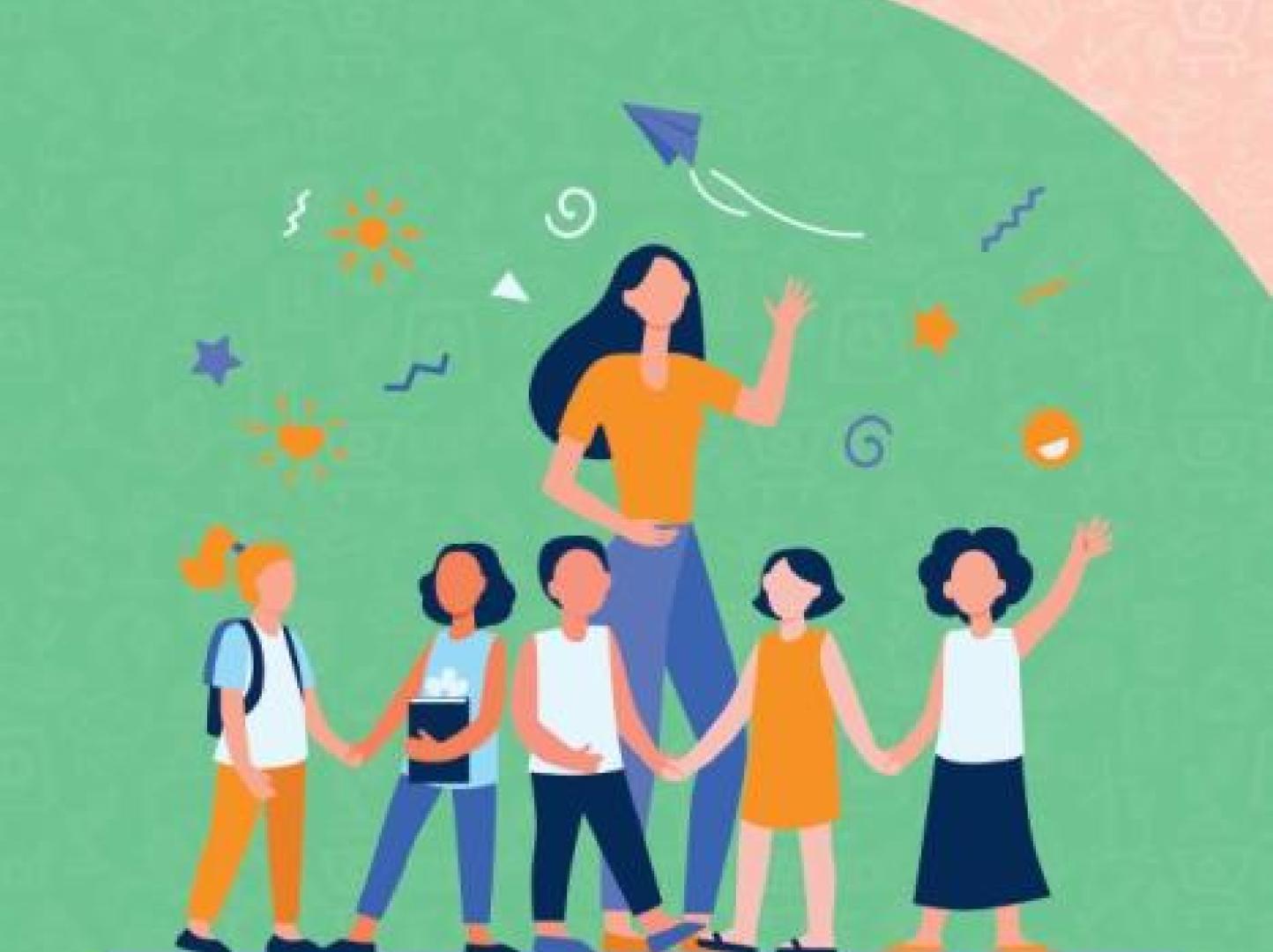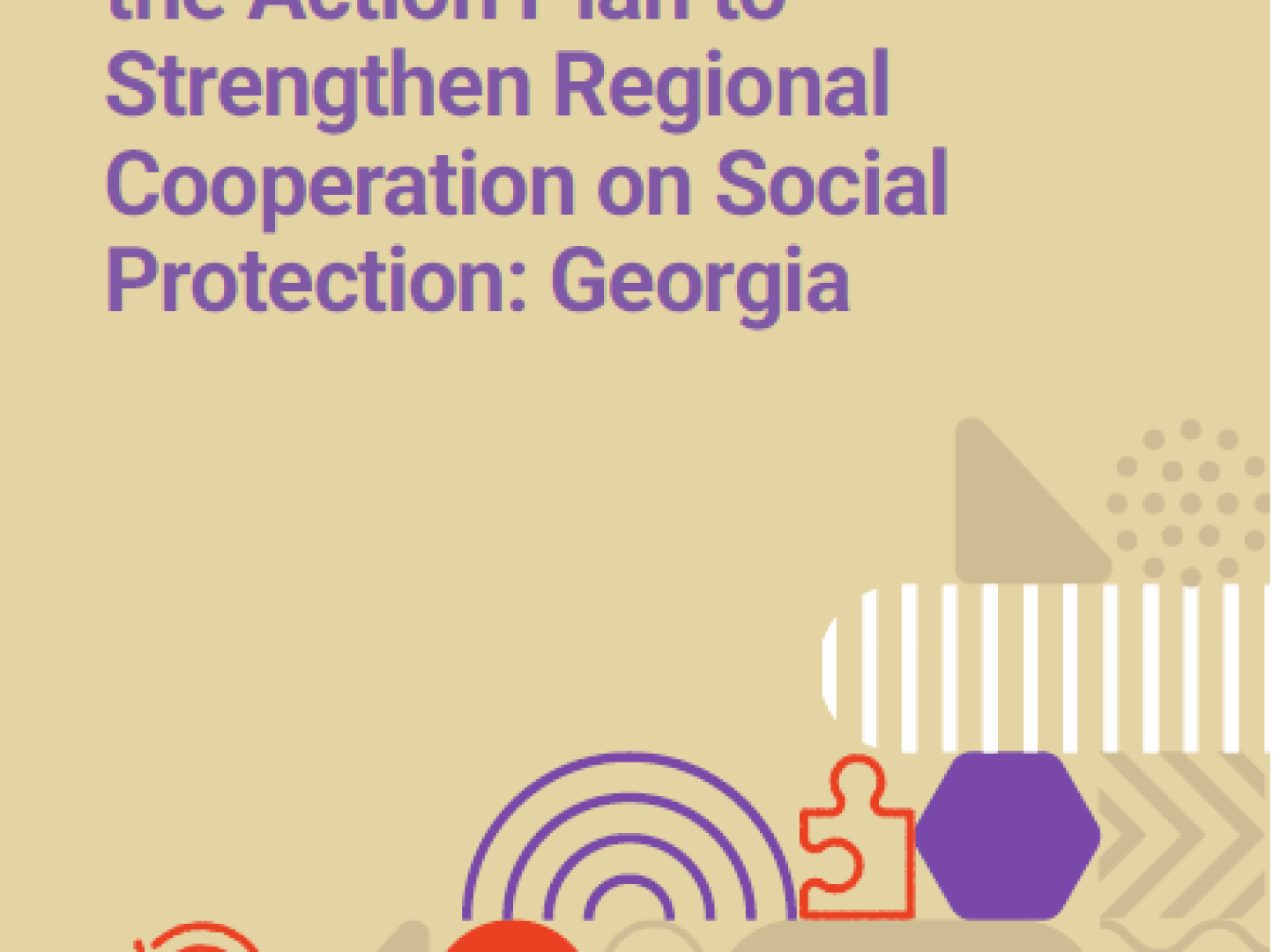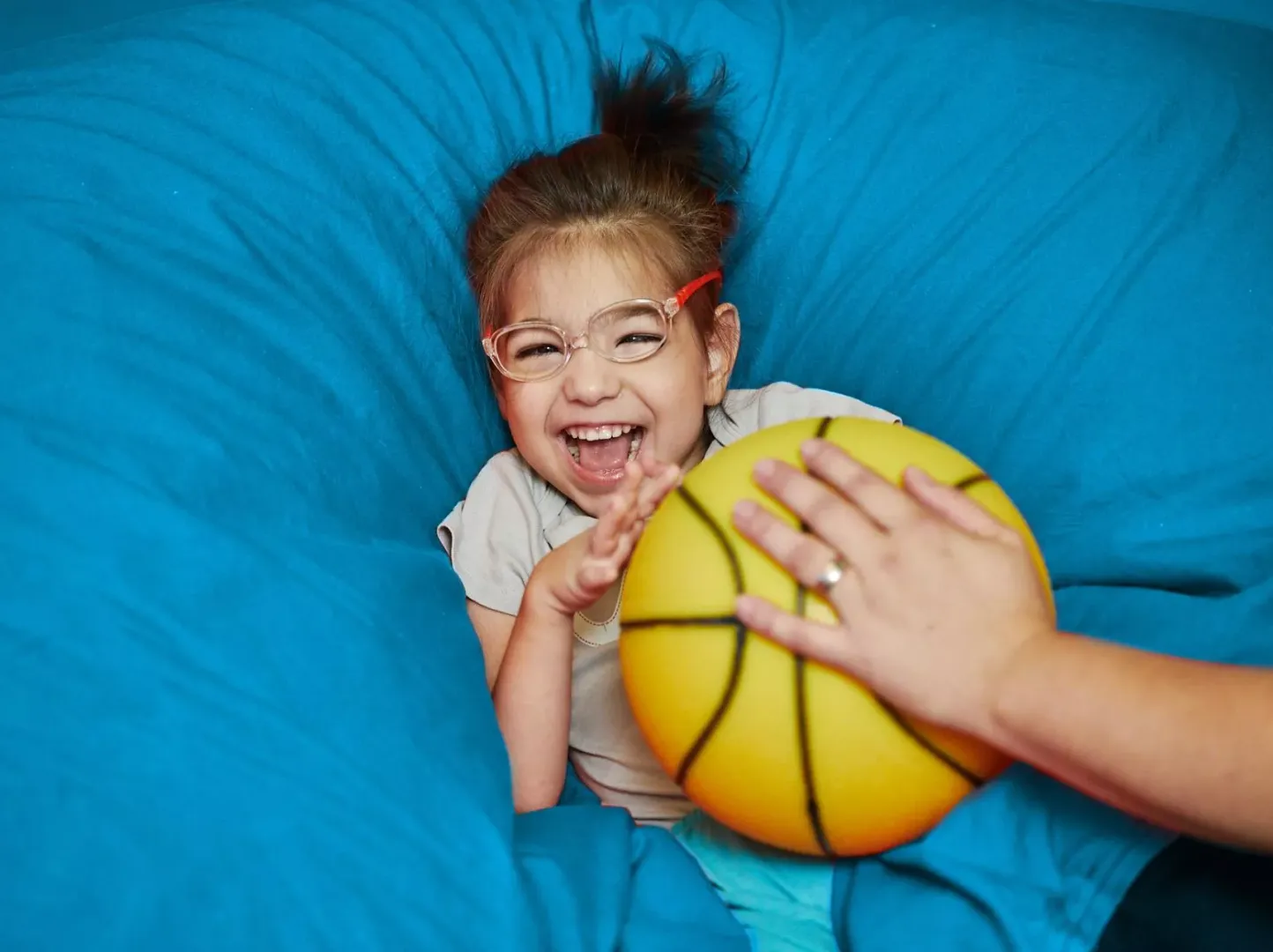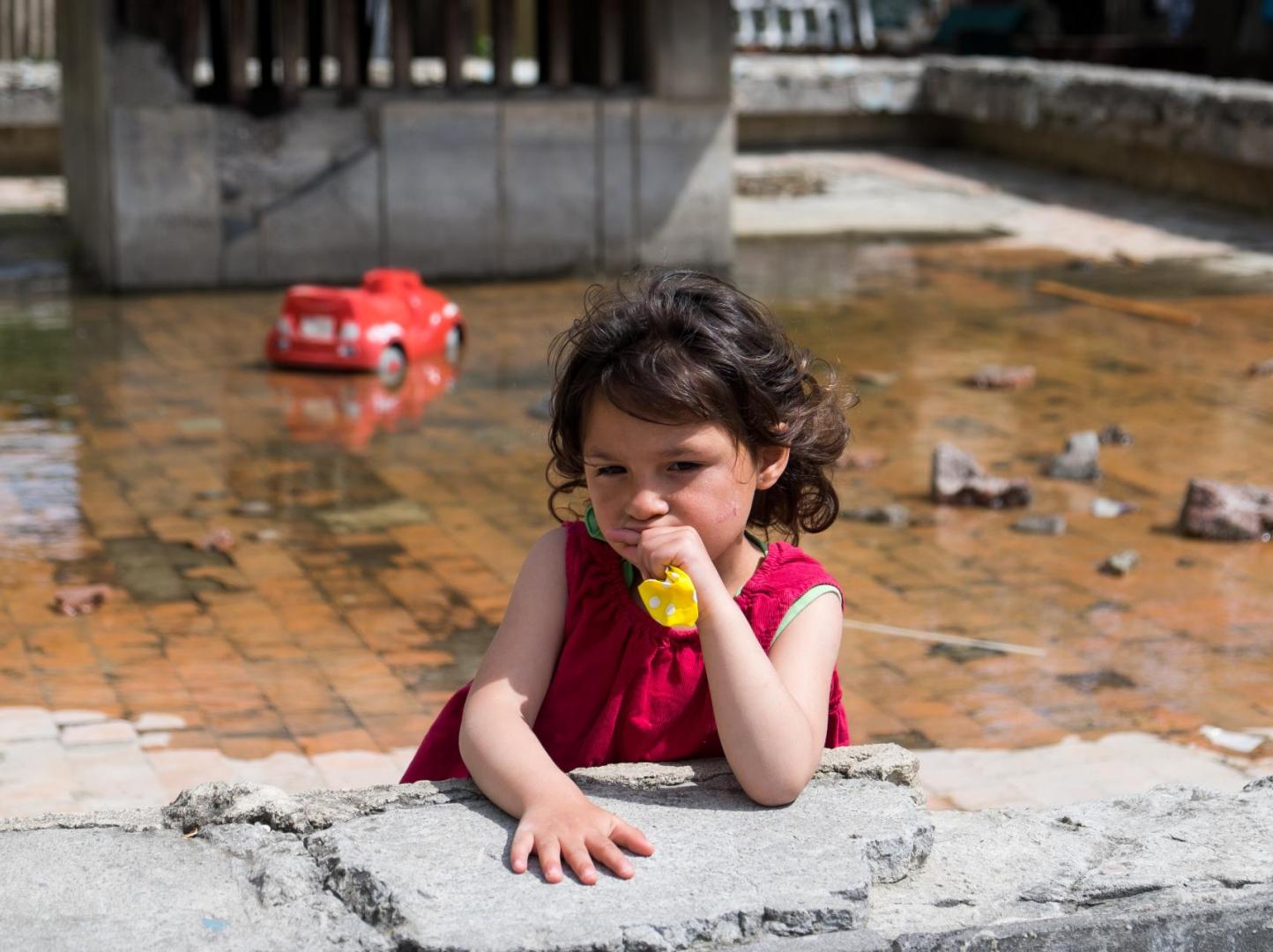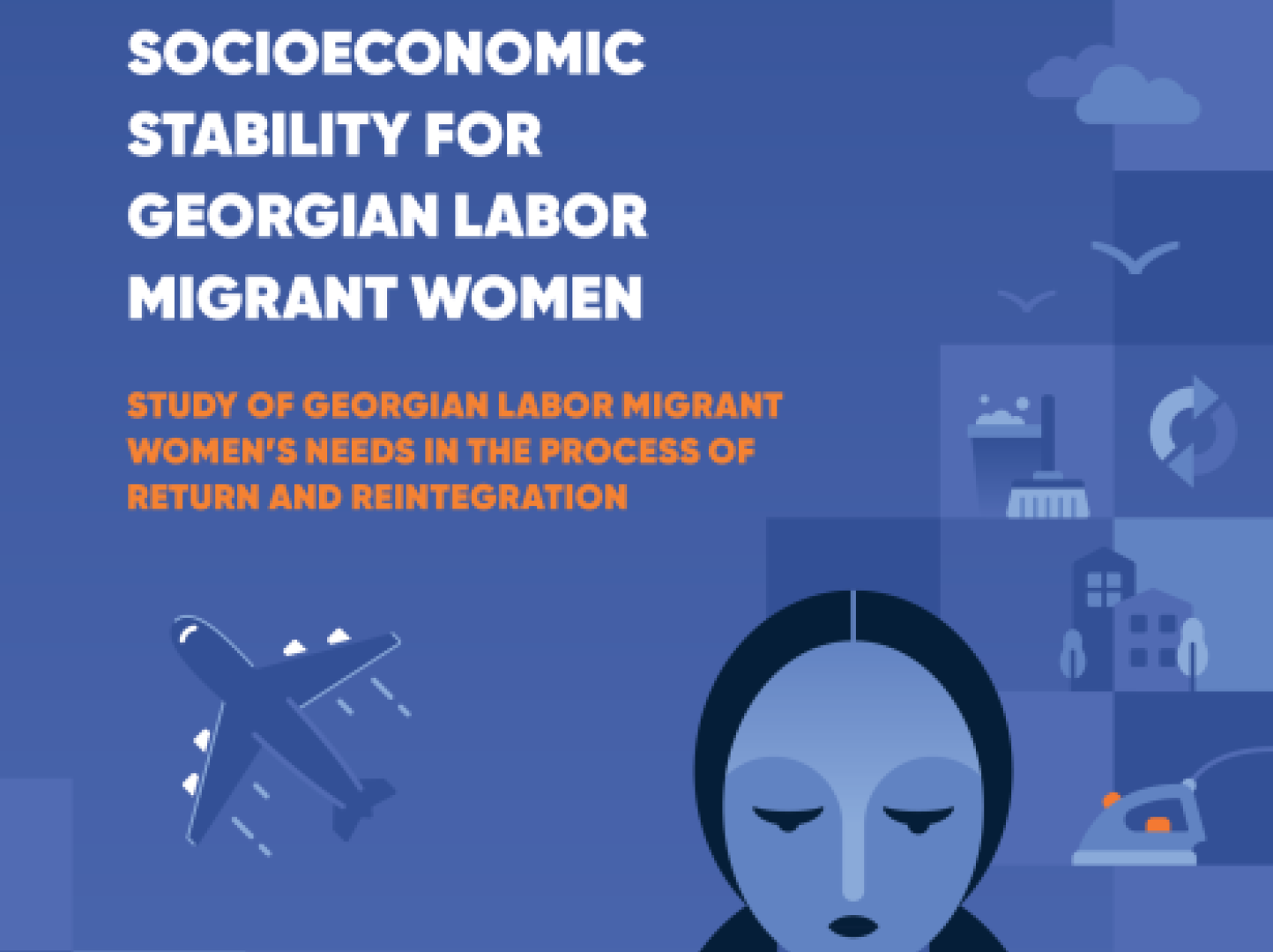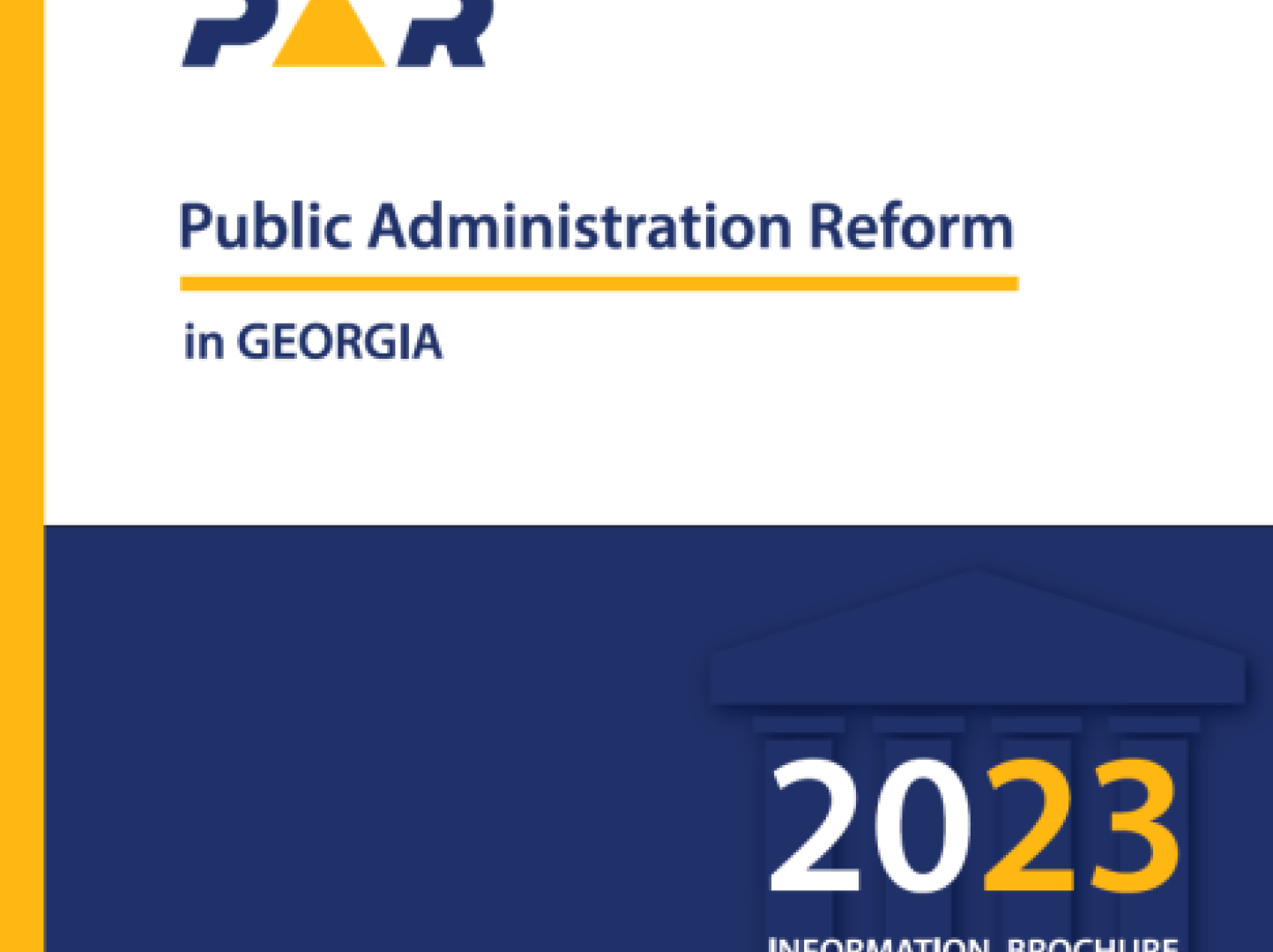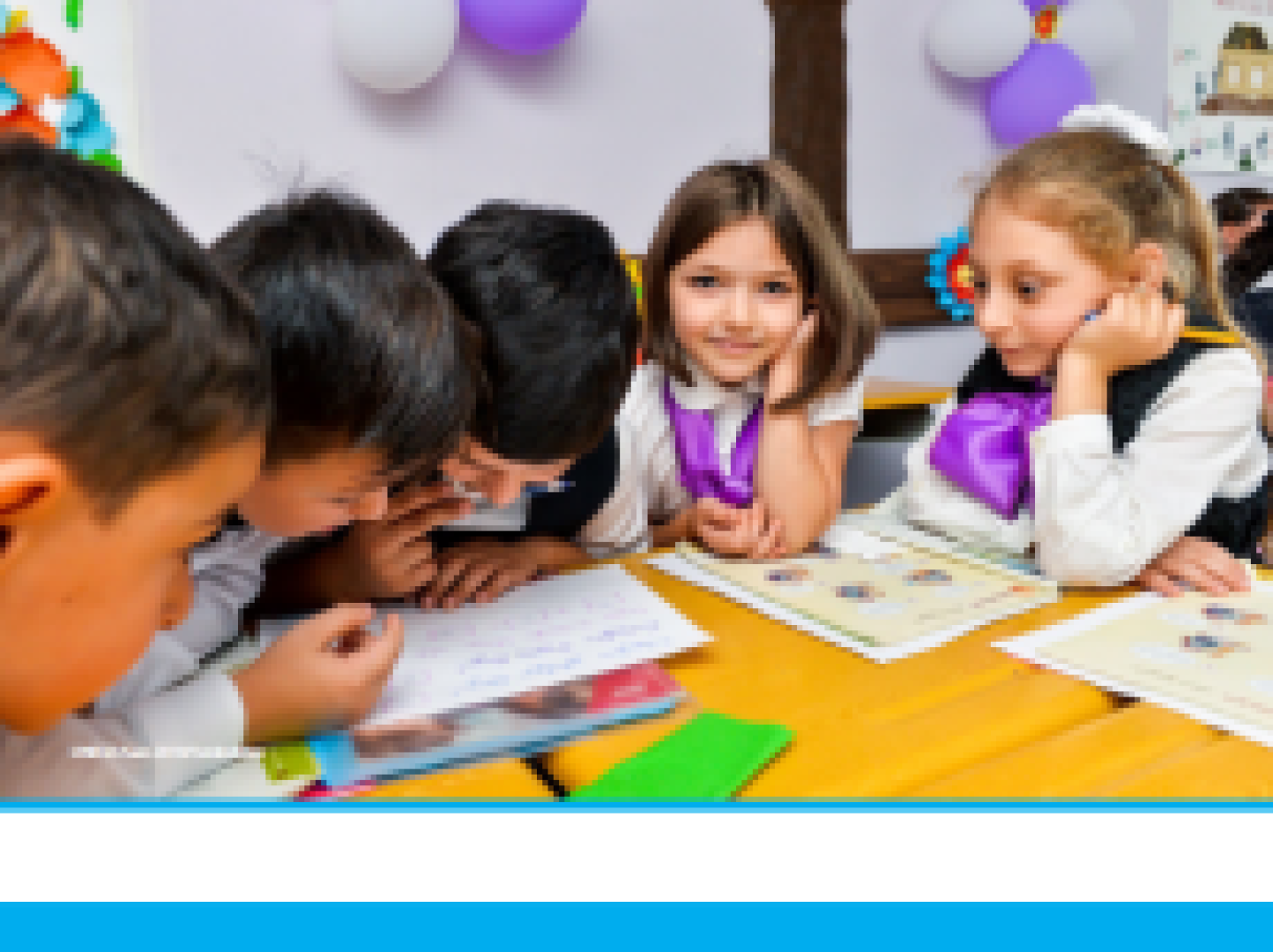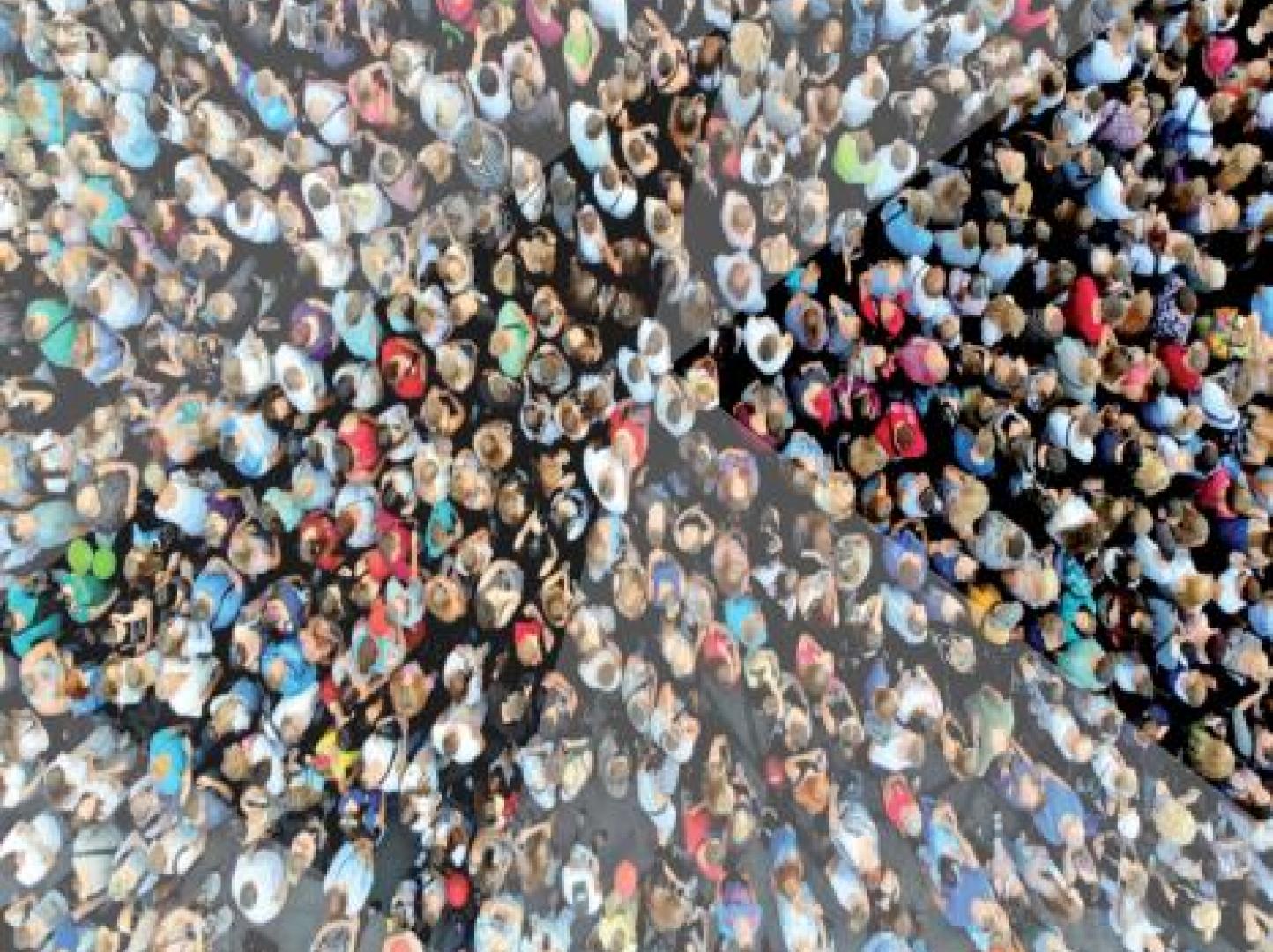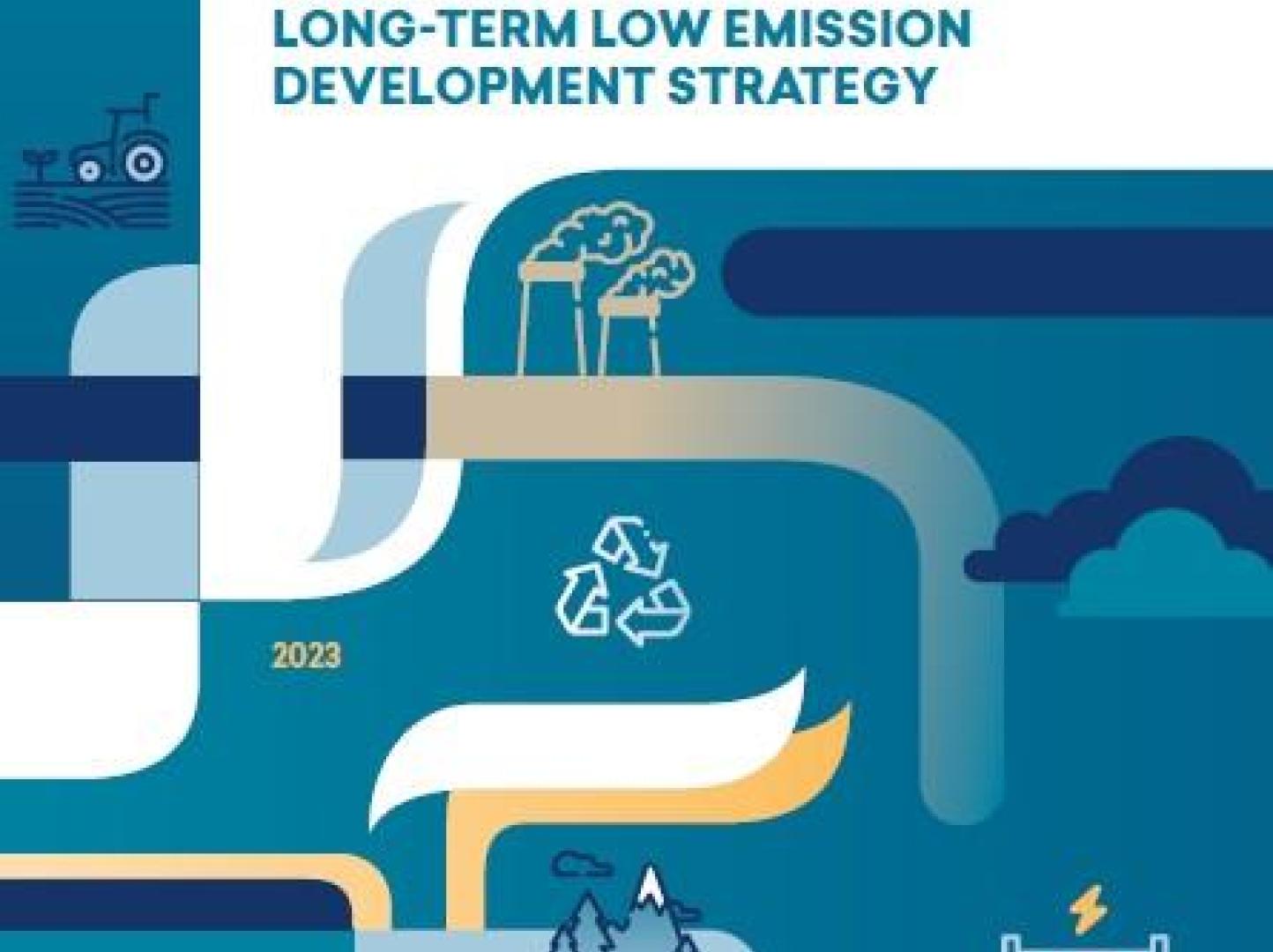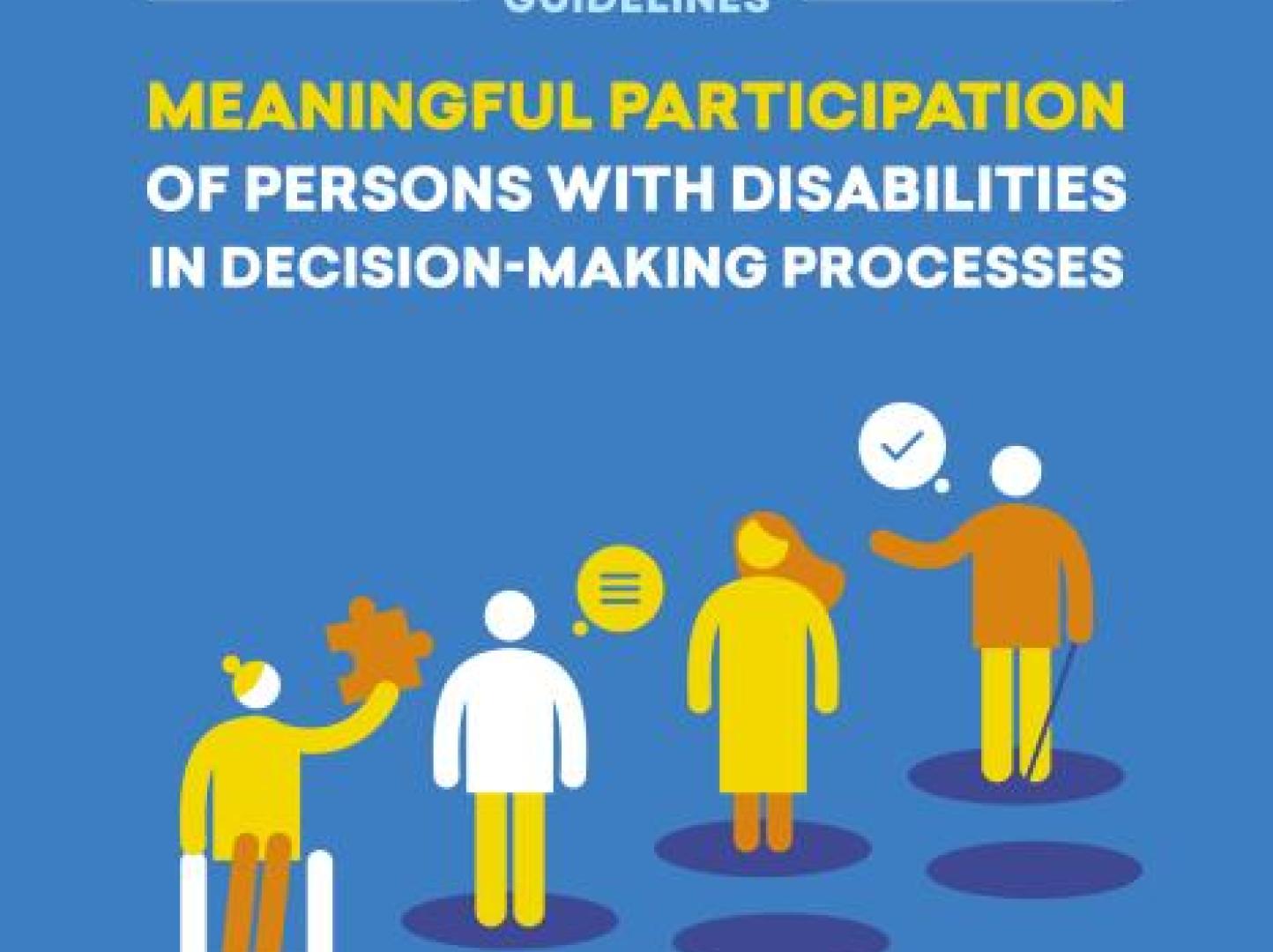Latest
The Sustainable Development Goals in Georgia
The Sustainable Development Goals are a global call to action to end poverty, protect the earth's environment and climate, and ensure that people everywhere can enjoy peace and prosperity. These are the goals the UN is working on in Georgia:
Story
01 April 2021
Human capabilities and social equality top new Cooperation Framework
An inclusive economy and human capital development, effective, transparent and accountable institutions, equal and inclusive access to quality services, human security and resilience, as well as the environment and climate change are the five priority areas outlined in the new UN Sustainable Development Cooperation Framework signed by the Government of Georgia and the United Nations today.
The new Cooperation Framework is firmly anchored in Georgia’s national development objectives and has one overarching priority for the coming years – enhancing human wellbeing, capabilities and social equality to make a real difference in the lives of people in Georgia.
The five-year document (2021-2025) is intended to ensure that the support by all the UN agencies is aligned to Georgia’s national priorities, to the country’s aspirations and development goals.
The Prime Minister of Georgia thanked the UN Resident Coordinator for the Organization’s steadfast partnership and commended the continued commitment of the United Nations to support national development priorities.
Speaking on behalf of the UN Country Team the UN Resident Coordinator Sabine Machl thanked the Government of Georgia for its continued support to the UN’s work in Georgia.
Under this Cooperation Framework, the UN agencies will continue supporting Georgia in its efforts to “Build Forward Better” in the wake of the global Covid-19 crisis and to set more ambitious goals and make further steps to a greener, inclusive and more sustainable development.
The UN will also support the Government in strengthening its regional cooperation in key strategic areas.
Particular attention will be paid to building partnerships with civil society and the private sector, whose innovative potential will be useful to achieve the objectives of the Cooperation Framework.
This Cooperation Framework for 2021-2025 guides the entire programme cycle of collective UN support to Georgia to achieve the 2030 Agenda.
Guided by several overarching principles - leave no one behind; a human rights-based approach; gender equality and women’s empowerment; decentralisation; resilience; sustainability; and accountability, environmental protection and innovation - the Cooperation Framework seeks to give new impetus to Georgia-UN cooperation for the next five years.
The Cooperation Framework priorities have been defined and formulated in the process of multi-stakeholder consultations with representatives of UN agencies, state institutions, civil society and academia.
The Cooperation Framework will be governed by the Joint National-UN Steering Committee - co-chaired by the Prime Minister and the UN Resident Coordinator.
1 of 5
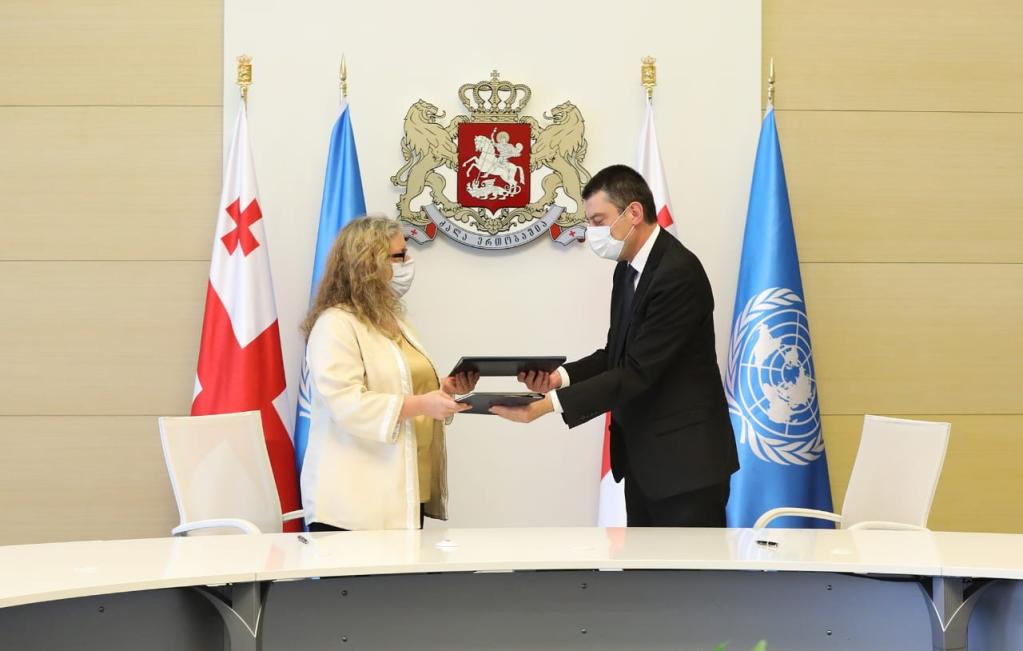
Take Action
16 June 2020
Coronavirus global outbreak
Everyone is talking about coronavirus disease 2019 (COVID-19). Take part in getting your facts from reliable sources.
1 of 5
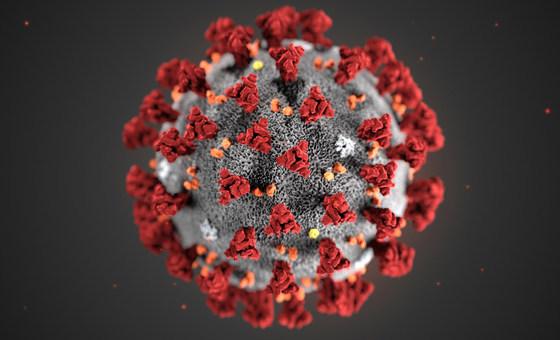
Press Release
25 January 2022
High-profile meeting held on improved access to justice for victims of sexual violence
Sexual violence is one of the most hidden offences in Georgia. According to the 2017 National Survey on Violence against Women, 9 per cent of women experienced sexual violence in childhood, although the rate of reporting is low. For instance, in 2020, investigations were started for only 31 cases of rape, while the courts have heard only 22 of the cases.
One of the reasons behind such a grim reality is that the legislation of Georgia requires amendments, and access to justice requires improvement. In addition, women’s silence about rape is provoked by existing erroneous views and societal attitudes, which often blame victims for what happened to them.
Due to this challenge, the focus of the 2021 campaign for the 16 Days of Activism against Gender-Based Violence is on combating sexual violence. The improvement of access to justice was a topic of the high-profile meeting held on 2 December 2021.
Representatives of the legislative and executive branches of the Georgian Government, the diplomatic corps and international and local non-governmental organizations attended the meeting, organized by UN Women and the UN Gender Theme Group.
H.E. Sabine Machl, UN Resident Coordinator in Georgia, opened the event, stating: “We join an effort aimed at the elimination of violence against women and girls, and we support the Georgian Government in implementing international commitments in the area of human rights, including the obligations supporting gender equality and combating violence against women and girls.”
Ambassador of Sweden to Georgia Ulrich Tideström stressed the importance of the topic: “We need to speak about sexual violence. And we need to act. We owe it to the victims. And we owe it to all women and girls who shouldn’t have to become victims of sexual violence. A key part must be to improve the access to justice. This also contributes to prevention by sending crystal clear signals that sexual violence is unacceptable and that perpetrators will be brought to justice. This is a global fight. We are in it together. The time to act is now! Count on Sweden’s continued support.”
Participants noted that distinct political will and relevant regulations are required to improve access to justice. They discussed such issues as making the elimination of sexual violence a priority, harmonizing the national legislation with the Istanbul Convention and other international standards, and applying best practices for the prevention of sexual violence against women, among other important topics.
On behalf of the Parliament of Georgia, Chair of the Gender Equality Council Nino Tsilosani expressed support in the fight aimed at the elimination of violence against women and noted that provisions of the criminal law on rape require harmonization with the Istanbul Convention. “This, as well as other proposals against violence, will definitely be initiated by the Parliament,” she stated. “In cooperation with the non-governmental sector and with strong donor support, Georgia will continue progressing to combat this global challenge.”
The high-profile meeting was held within the framework of the UN Joint Programme for Gender Equality, implemented with the support of the Swedish Government.
1 of 5
Press Release
14 January 2022
United Nations concerned over the decision of Georgian authorities to abolish the State Inspector’s Service
The United Nations Country Team in Georgia expresses its regret over the decision of Georgian authorities to abolish the State Inspector’s Service. On 13 January 2022 the President has signed a new law abolishing the State Inspector’s Service and creating two separate institutions: Special Investigative Service and Personal Data Protection Service.
We are particularly concerned about the expedited manner and lack of inclusive and transparent discussions about the abolition of one of the most credible, independent and authoritative institutions in Georgia that is mandated to investigate alleged human rights violations committed by law enforcement officials and is entrusted with the oversight of personal data protection. The lack of convincing justification for abolishing the State Inspector’s Service and the absence of compelling rationale for stripping the State Inspector of her six-year mandate sends a chilling message to independent institutions of human rights protection.
We are concerned that the substantial broadening of the list of crimes falling within the mandate of a newly created Special Investigation Service entails a serious risk of overburdening the agency and distracting its team from fulfilling its primary mandate to combat impunity. We recall the recommendation by UN Special Rapporteur on torture and other cruel, inhuman or degrading treatment or punishment on his mission to Georgia (2015) stating concerns ‘at the risk that unduly broad jurisdiction, whether exclusive or discretionary, may make the task of the [State Inspector] overly burdensome [if] ... offences committed by law enforcement agents that are not part of the core group of torture or cruel, inhuman or degrading treatment or punishment… [fall within its mandate]’.
We call on the authorities to request the opinion of relevant international institutions on the compliance of these decisions with the international standards.
1 of 5
Press Release
25 January 2022
Georgian women push for inclusive and gender-equal policies
Women’s representation in municipal councils grew almost two-fold as a result of the 2021 local elections in Georgia, reaching a historical 24 percent. In the aftermath of elections, the Women Councillors Forum uniting over 490 women members of municipal councils gathered at an annual conference to discuss the new opportunities brought on by the increased number of women in elective self-government bodies and specific steps to be taken to bring women’s perspective to the local and national agenda.
The event brought together women members of local councils from all regions of Georgia, and representatives from the Georgian Government, Parliament, political parties, civil society and international organizations. It discussed women’s role in advancing local politics as well as cooperation between the Parliament’s Gender Equality Council and the municipal Gender Equality Councils.
The forum was organised by the Municipal Service Providers’ Association (MSPA) of Georgia and the United Nations Development Programme (UNDP). It was supported by the Government of Sweden and the International Republican Institute.
“Women politicians are bringing a range of experiences and perspectives to the table – be it on social services, poverty reduction, employment or protection of the environment. We hope that newly elected women will lead on those issues to deliver great results for the Georgian society,“ said UNDP Deputy Head Anna Chernyshova.
“The 2021 elections were a significant step towards more women in local politics. I hope this trend continues in future elections at all levels. It is equally important that the voices and perspectives of women politicians are heard in the public debate and impact the political decision-making on the same terms as for male politicians. Sweden has for over two decades been supporting women’s rights and empowerment in Georgia, including in politics, and will continue to do so. Gender-equal and inclusive participation in politics means a stronger democracy and better policies in all areas and is something that the Georgian voters are increasingly calling for. It also contributes to Georgia’s European integration,” noted Ambassador of Sweden to Georgia Ulrik Tideström.,” noted Ambassador of Sweden to Georgia Ulrik Tideström.
The other speakers at the Forum included Nino Tsilosani, Chair of the Parliamentary Gender Equality Council; Niko Tatulashvili, Advisor to the Prime Minister of Georgia on Human Rights Issues; Mzia Giorgobiani, Deputy Minister of Regional Development and Infrastructure of Georgia; and John DiPirro, IRI Resident Program Director.
The Women Councillors’ Forum was established in 2013, with support from UNDP and Sweden. It serves as a cooperation platform encouraging Georgian women to become more active in public life and local decision-making. The work of the Forum responds to the aspirations of almost two-thirds of Georgia’s population that, according to the UNDP’s survey, think that greater involvement of women in politics would benefit the country.
1 of 5
Story
16 April 2024
Women Breathe New Life into Communities Affected by Conflict
The village of Perevi is nestled in Georgia’s Shida Kartli region along the Administrative Boundary Line with the Tskhinvali Region/South Ossetia. Historically, Perevi thrived on agriculture, particularly animal farming and beekeeping. However, its fortunes took a downturn following the armed conflict in 2008.As movement restrictions were imposed, Perevi residents lost access to vital summer pastures. Their livelihoods were disrupted leaving the community with limited prospects. Many Perevians left their village seeking opportunities in the cities or abroad. Despite these challenges, 150 families still live in Perevi, grappling with social and economic hurdles.The European Union and UNDP, through the EU4Dialogue project, assist Perevi residents in revitalizing their village. Targeted grants and other types of support, implemented in partnership with the civil society organization 'Regional Development Support Centre', reached out to over 100 people, offering resources they need to kickstart rural entrepreneurship.Perevi is just one of the conflict-affected villages where the EU and UNDP work hand-in-hand with civil society organizations, municipalities, and local communities bolstering economic and social resilience and creating opportunities for entrepreneurship and income generation.Throughout 2023 and 2024, this support benefited up to 1,500 internally displaced and conflict-affected women across Georgia.Photo: UNDP/Gela BedianashviliA New Path to Prosperity42-year-old Tsitsino Sisvadze, a dedicated nurse at Perevi Public School, pioneers alternative agriculture practices by transforming her hobby into a sustainable enterprise. With the grant support from the EU4Dialogue project, Tsitsino purchased wooden logs, mushroom mycelium, and a drip irrigation system to set up a mushroom farm in her backyard. As snow melts and spring approaches, she eagerly anticipates her first harvest. “In Georgia, women still face barriers to economic activities. I wish to address every woman who wants to start a business. Nothing can stand in your way. No “I am a woman, I can’t do it”. We shall take risks and do our best. I believe that hard work bears fruit sooner or later”, says Tsitsino.Photo: UNDP/Gela BedianashviliOne Loaf at a TimeNana Kapanadze, a 46-year-old village doctor, has recently taken on a new role as a baker. For her, bread baking isn't just a pastime; it's a response to a critical need within her community. In Perevi, access to freshly baked bread is a rare luxury, as distribution companies only deliver bread from the administrative centre once a week. The alternative? Taking matters into one's own hands and baking bread at home.With essential support from the EU4Dialogue's grant programme, Nana invested in professional equipment and established a small bakery, which quickly gained popularity among Perevi residents. As the delicious smell of freshly baked bread permeates the village, Nana’s bakery brings hope for a better future.“If my bakery keeps growing, I can hire more people, creating jobs for my fellow villagers. My wish is to teach others how to bake great bread. The grant support I received is an inspiration for other women. They call me ‘smart’ and want to follow my example”, shares Nana.Photo: UNDP/Gela BedianashviliTimeless SuccessMeet Lida Enukidze, 70, whose inspiring story proves that it’s never too late to chase your dreams. Lida represents an unyielding spirit of women who defy societal norms and surpass expectations. Her sewing journey began in her youth when she mastered the craft at a vocational school. After years of working in a sewing workshop, Lida joined forces with fellow villager, Mzia Beridze, to establish a sewing business. Over the past decade, they've catered to both individual and commercial clients.Thanks to the EU and UNDP support, Lida's sewing salon received a boost with new equipment, including a multipurpose sewing machine, electric scissors, and professional iron. This investment enabled a modest village enterprise to undertake larger orders, such as crafting essential bed linen for regional hospitals.“Rural women encounter many challenges that encourage us to find solutions and grow. What we need is inspiration and positive examples. We must take care of ourselves because no one else will,” shares Lida. “This project showed me that I can be an inspiration for other women in my village.”Photo: UNDP/Gela BedianashviliTaking FlightKhatuna Bregvadze is a 45-year-old librarian turned entrepreneur. Her story serves as an example of women’s resilience in the face of economic and social hurdles.Like many Perevi residents, Khatuna has to supplement her professional work with agricultural activities to make a living. For the past eight years, poultry farming has been her lifeline, enabling her to make ends meet.Through the EU4Dialogue’s grant programme, Khatuna seized the opportunity to expand her small hatchery by acquiring two incubators for hatching eggs and an electricity generator to regulate the energy supply. With this support, she now supplies fresh poultry to the village, while also boosting egg sales.“Poultry farming is more than just a job and income. It's my way of showing that positive change is possible, even in our small and poor village.”Background Information:EU4Dialogue: Support to Conflict Transformation in the South Caucasus and the Republic of Moldova is a joint initiative of the EU and UNDP under the broader EU4Dialogue programme. The project partners with local civil society organizations and grassroots groups to improve socio-economic conditions for people, build livelihoods, drive progress toward gender equality, promote youth engagement and support the peaceful transformation of conflict.Disclaimer:This story was produced with the financial support of the European Union and UNDP under the EU4Dialogue project. Its contents do not necessarily reflect the views of the European Union and UNDP.
1 of 5
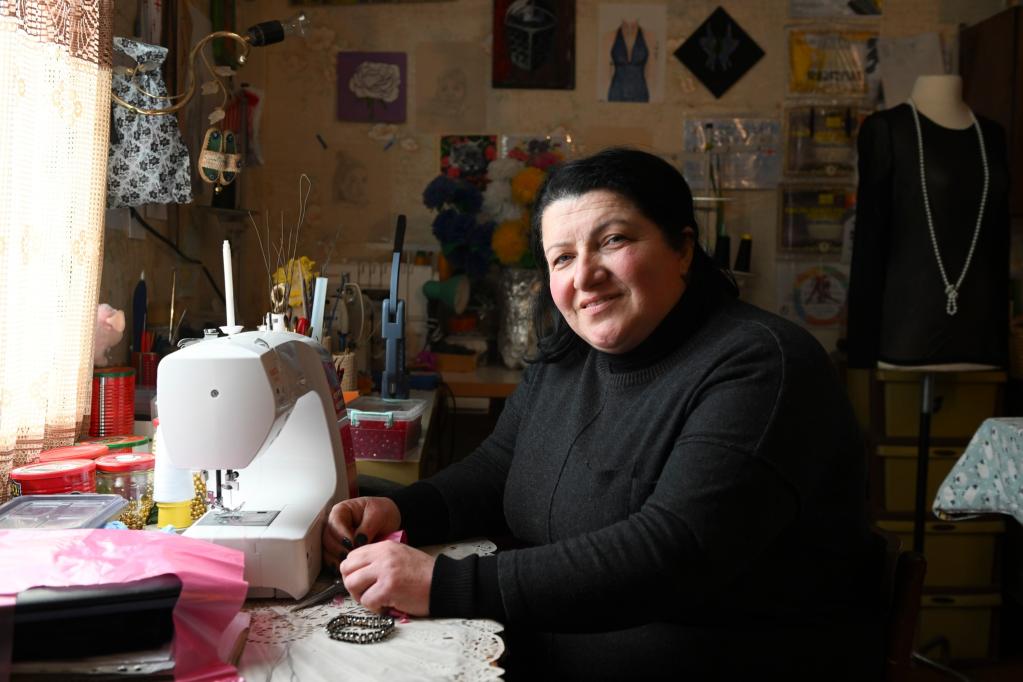
Story
02 March 2024
Microcredit helps Ukrainian refugees start businesses in Georgia
While strolling through the city centre of Batumi, a port city on Georgia’s Black Sea coast, a small Ukrainian café is sure to catch your eye. Adorned with colourful murals and filled with Ukrainian symbols and ornaments, “Like at Home” is a welcoming space that has quickly become a favourite spot for both local and refugee families. Owner Irina Dotsenko, a 67-year-old Ukrainian from Kharkiv, describes it as the "Ukrainian soul in Georgia". The name is based on the heart-felt compliments of Ukrainian customers reminded of dishes they used to enjoy back home such as Borsch, Holubsti and Deruny. Irina believes it to be fitting, as she brought with her the cherished recipes she, her mother and her grandmother used to prepare in Ukraine before Russia’s full-scale invasion of the country in 2022. Unable to cook for her family, who remain in Ukraine, she channels her care into cooking for other refugees from Ukraine, as well as for the local community. “The pain of Ukraine is my pain,” she says. “But it’s a nighttime pain. During the day, my mind is occupied with the people – their worries, and the hustle for work.” Irina talks to a customer at her café, which has become a favourite in Batumi with Ukrainians hankering for a taste of home, and with locals.© UNHCR/Kakha MshvidobadzeAmidst the chaos of full-scale war and the unprecedented numbers of Ukrainian refugees arriving to Georgia, Irina initially organized food banks to support those in need. But soon she recognized the employment challenges faced by many Ukrainians, and she began hiring some of them. Now, 30 out of 44 of her employees are Ukrainian refugees, while the rest are made up of a wide range of nationalities, including Georgians.A financial product designed for refugees But her small café with its 12 tables needed only half that number of staff and she was soon faced with a dilemma. “I take responsibility for each person working with me – no exceptions,” she says. “The simplest solution would be let people go, but that’s not a viable solution.” Instead, she decided to open a second café. With limited financial resources of her own, she stumbled across an advertisement for Crystal, a microfinance institution in Georgia that had recently launched a programme specially designed to assist refugees from Ukraine. Irina promptly applied for a micro-credit loan, which she received within three days following a meeting with Crystal. The additional finance transformed her aspirations into reality, enabling her to purchase the necessary kitchen appliances and equipment to open the second café in December 2023. Of some 245,000 refugees from Ukraine who have crossed the border into Georgia since February 2022, about 26,600 Ukrainians remain in Georgia today, many of them from heavily war-affected areas in the east of Ukraine. They can access healthcare and education, as well as cash assistance for the most vulnerable, but finding work and affordable housing can be challenging. Since launching in 2022, Crystal’s programme for Ukrainians, which includes business mentoring services in addition to micro-finance, has helped over 30 Ukrainian entrepreneurs like Irina to support themselves and other refugees. Tackling stereotypesThe founder and chairman of Crystal, Archil Bakuradze believes that providing job opportunities and business development is the most effective way to support refugees. An internally displaced person from Abkhazia, the breakaway region of Georgia, he understands the importance of solidarity and support in rebuilding lives. His company was established 25 years ago by a group of young people displaced from Abkhazia. It is now the largest microfinance institution in Georgia. Irina talks to her employees ahead of the opening of the second "Like at Home" café.© UNHCR/Kakha MshvidobadzeIrina decorating her newly opened café with Ukrainian symbols.© UNHCR/Kakha Mshvidobadze"It is very important to tackle the stereotype that refugees may be a problem or be risky customers. We know ourselves that most refugees are talented, economically active people, and displacement helps mobilize them even more than usual,” he says. “Globally, the idea of supporting the financial inclusion of refugees is a sensible policy, and we would encourage any other financial institution to think about having such programmes for refugees." Following discussions with UNHCR, the UN Refugee Agency, his company will soon be extending its financial programmes to refugees of different nationalities living in Georgia, enabling them to start and expand their businesses. “This type of financial assistance is crucial for individuals, and it contributes significantly to the country's economy,” says Irina, as she opens the doors to her second "Like at Home" café in Batumi. “We've also become useful to Georgia.” "I take responsibility for each person working with me – no exceptions."Irina Dotsenko
1 of 5
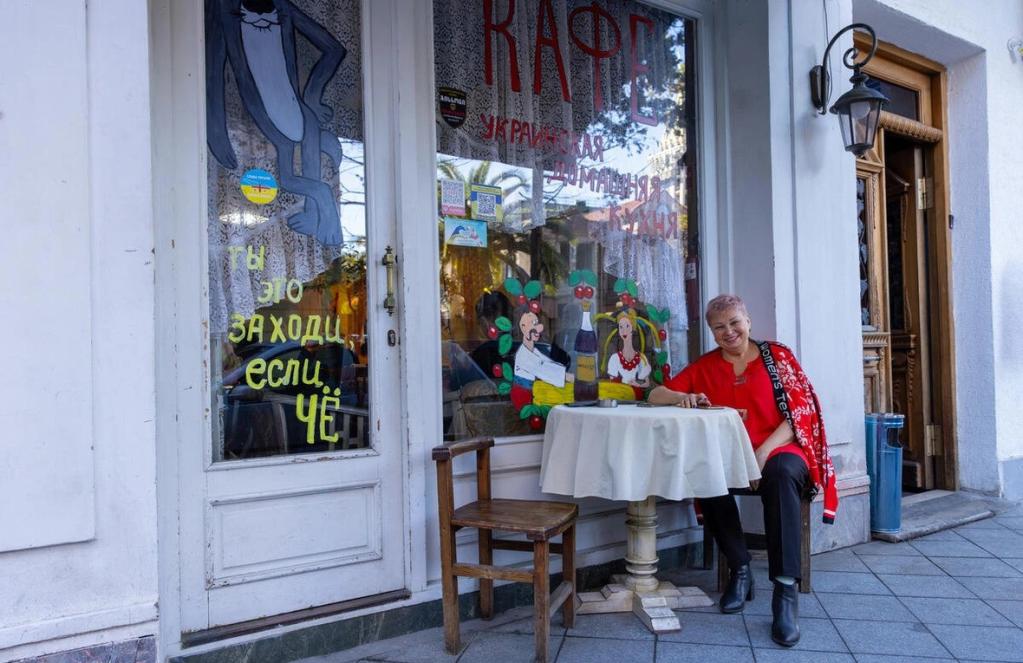
Story
09 February 2024
Suramula: How to Survive a Flood
Gameplay Rooted in Reality
Roaring water floods the streets. A quest for safety begins! Is it reality or a game?
For 15-year-old Salome Noniashvili from Georgia's Kaspi municipality, it's both. Co-author of the online game Suramula, Salome harnesses the power of play to teach people how to navigate climate disasters.
Salome's hometown faces annual climate challenges, with the Suramula River transforming into a destructive force. Drawing from real events, the game incorporates footage and photos from past floods. In their attempts to flee, players encounter challenges mirroring the struggles of real-life scenarios.
"To escape the flood, players need to climb high buildings. As they go up, they face new challenges, creating an immersive gaming experience."
Salome Noniashvili, Young Climate Ambassador and co-author of the Suramula online game
Accessible through the gaming portal Roblox, the Suramula game transcends virtual boundaries, driving a climate awareness campaign aimed at the youth in Kaspi Municipality. Salome and her friends organized information meetings and seminars, engaging over 50 young participants. These events were focused on disaster management, community resilience, and green entrepreneurship, fostering an understanding of environmental challenges and inspiring youth to actively contribute to green solutions.
Photo: UNDP Georgia/Giorgi Shengelia
From Camp to Action: Young Climate Ambassadors
In the summer of 2023, Salome Noniashvili's visionary initiatives took root at the "Climate Ambassadors" educational youth camp. Alongside 50 bright and keen climate activists from all corners of Georgia, Salome thrived in a friendly environment, offering young minds a platform to learn, connect, and refine their leadership and entrepreneurial skills.
The transformative experience left camp participants brimming with newfound knowledge about environmental challenges and a passionate determination to shape a sustainable future. Many, including Salome, embarked on projects addressing environmental issues in their home regions.
"The summer camp for Young Climate Ambassadors is the realization of my values, experiences, and the knowledge I eagerly sought."
Salome Noniashvili, Young Climate Ambassador and co-author of the Suramula online game
Nurturing Environmental Champions
The Climate Ambassadors camp is a joint initiative of UNDP and the Environmental Information and Education Centre of Georgia’s Ministry of Environmental Protection and Agriculture. The camp aims to raise climate awareness across the country, engaging local communities and youth in national climate action.
In 2022 and 2023, the camp welcomed 110 young climate activists, nurturing a generation of environmental champions.
Through innovative initiatives like the Suramula game, young leaders like Salome Noniashvili are actively contributing to a sustainable and resilient future.
This pivotal work is part of the UNDP’s broader climate programme, supported by the Green Climate Fund, and the governments of Georgia, Sweden, and Switzerland.
1 of 5
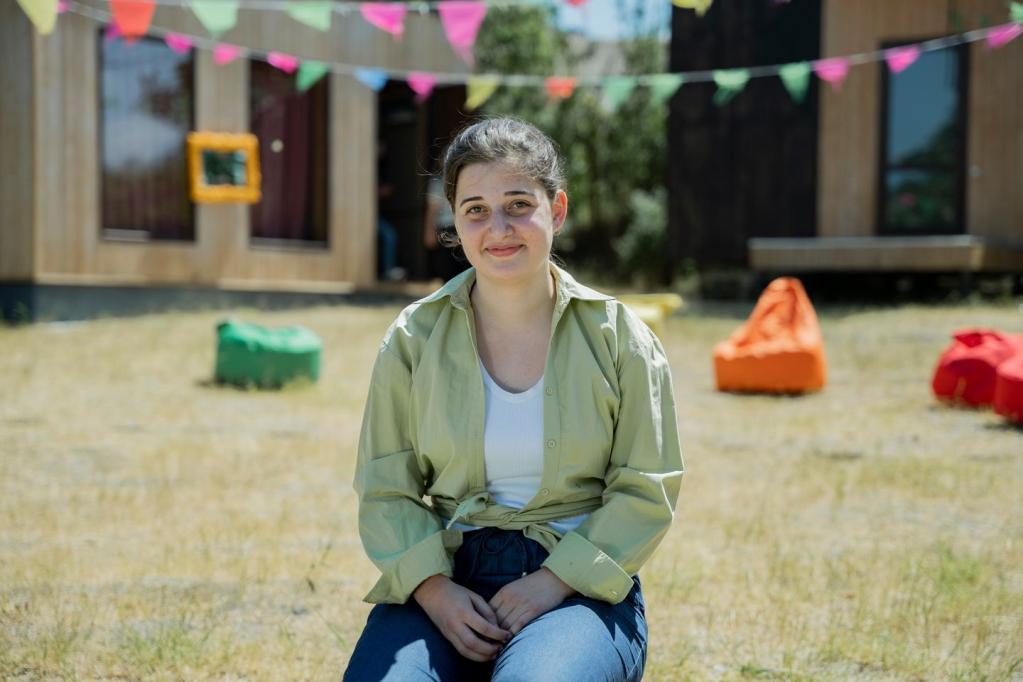
Story
24 January 2024
Telemedicine: Bridging a Healthcare Gap in Georgia
As challenging as the COVID-19 pandemic was, it brought forth some positive transformations in health services. When the pandemic hit Georgia, with forced lockdowns and overwhelmed hospitals, telemedicine had an opportunity to grow remarkably. Initially driven by necessity, today, the use of telecommunications to provide healthcare remotely has proven extremely valuable in reaching patients in Georgia’s remote and mountainous regions, roughly 40 per cent of the population.
In rural areas with limited healthcare infrastructure and a shortage of medical professionals, residents often face significant challenges in accessing timely and comprehensive care. This is exacerbated by long distances, harsh and unpredictable weather, and limited transportation.
Under my leadership, as the UN Resident Coordinator in Georgia, and in collaboration with the World Health Organization (WHO), the UN Population Fund (UNFPA), the UN Children's Fund (UNICEF), and the UN Office for Project Services (UNOPS), the UN in Georgia has partnered with the Ministry of Health to connect patients to primary health care, overcoming significant geographical barriers. Successful negotiations with the European Union Delegation, which I facilitated, resulted in the approval and launch of a €4.7 million (US$ 5 million) telemedicine initiative.
Complementing other UN health efforts, the programme has provided over 1,700 medical furniture and devices, nearly 9,200 medical supplies, and training on the usage and maintenance of equipment to 400 ambulatory doctors across 55 municipalities in Georgia. We continue to support medical personnel in enhancing surveillance, data management, and contact tracing capabilities, including through the implementation of the outbreak investigation tool Go.Data, for field data collection during public health emergencies.
Prioritizing critical infrastructure, the country's digital transformation has enabled patients to consult with healthcare providers and raise their awareness about health-related issues from their own homes. This advancement allows doctors to prescribe medicines, obtain additional expertise, enter immunization data, conduct ante-natal care consultations with expectant mothers, and compile reports.
Improving the Continuity of Care
The scope and potential for telemedicine to play a significant role in Georgia is expansive. Georgia has a significant burden of non-communicable diseases (NCDs), which are responsible for 88% of all deaths in the country. Various factors, such as a lack of preventive measures, poor early detection services, a lack of specialized healthcare services in rural areas and inadequate control of chronic diseases are among the main reasons for this. Virtual counselling and digital health solutions have emerged as a solution to expand access to healthcare for these patients.
With the support of the UN’ s programme, regular virtual check-ins with nurses, doctors and specialists help monitor chronic conditions, identify potential health concerns early, and ensure that patients receive effective ongoing care. In one such instance, more than 3,000 women in Georgia have now registered for cervical, breast and thyroid cancer screening, with the help of their family doctors.
Remote child development services have also been introduced in approximately 50 rural clinics throughout Georgia, providing telecare platforms, medical devices, and ICT equipment. Digital telemedicine solutions make routine health checks for children and early childhood intervention specialists more accessible and affordable. Online antenatal care visits are also available for pregnant women with special needs or from remote areas.
We are also supporting the establishment of virtual learning networks, which connect rural family doctors with professionals, such as developmental pediatricians, child psychologists, and youth psychiatrists to mentor and guide community practitioners and ensure the delivery of high-quality services.
Capacity building of doctors and nurses
Today, doctors have access to the latest professional information through a common online information platform based at the Emergency Coordination and Emergency Assistance Center of Georgia and through the Continuous Medical Education platform based at Tbilisi State Medical University. In this project, the WHO has formulated telemedicine clinical guidance and care pathways, outlining the requirements for running teleconsultation services associated with priority non-communicable diseases. Rural doctors are also being trained to conduct online consultations using digital medical devices, resulting in advanced competencies in telemedicine and increased skills in using digital solutions.
Digital Future for Healthcare
The UN's telemedicine initiative is part of our broader support for Georgia's health agenda, aligning with the commitment to SDG 3.8 for universal health coverage. Looking ahead, we believe telemedicine can facilitate universal access to a sustainable primary healthcare system, regardless of location, and at minimal cost, utilizing digital solutions to bridge the healthcare gap for the most vulnerable communities.
At the 2023 SDG Summit, UN Secretary-General Guterres called for the prioritization of six key areas to accelerate the SDGs, including digital connectivity. We need to now lift the Summit’s Political Declaration off the page and reaffirm our unwavering commitment to inclusive digital transformation and a healthier future for all.
-----
This blog was written by the UN Resident Coordinator in Georgia, Ms. Sabine Machl.
1 of 5
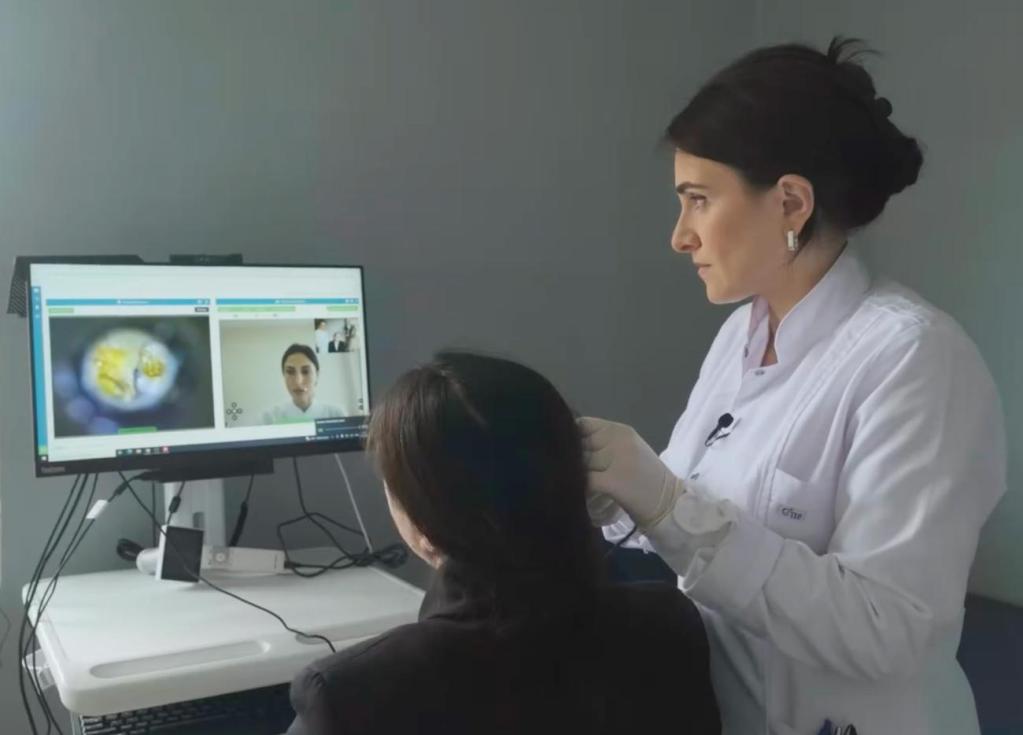
Story
18 January 2024
Empowering Lives
8-year-old twins, Ani and Mari, play with their cat “Piso” in the yard while chatting with the local municipality social worker, Ia Ekhvaia – a frequent visitor to their home. The girls show Ia their recent drawings and tell her their plans for the future. Mari wants to become a veterinarian and Ani, a fashion designer. Ia smiles and encourages the girls while checking in with their mother if there is anything the family needs at this point. This family of seven, refugees from Abkhazia now living in the village Rukhi, has been in the focus of the municipality due to the grave living conditions and severe financial problems that they faced.
“We were constantly frustrated, the state support we received was only enough for some food and basic goods, but the children need so much more as they grow up,” says Gulnazi, the 43-year-old mother of Gocha, 13, Salome, 11, Nini, 9, and the twins.
Practical skill-based intervention programmes from the municipality of Zugdidi helped the parents find stable work, complementing and in the long-term, replacing the support provided by the government. The father, who had been unemployed for over a decade due to health issues, secured a position within the municipality, while the mother found employment in the local kindergarten. The municipality supported the children in enrolling in after-school classes where they learn English, since all of them were interested and gifted in languages.
Nino Skhulukhia, head of Zugdidi municipality's Social Department, emphasizes the significance of a pragmatic, holistic approach in addressing vulnerability. "You cannot be too emotional or else you will lose all professional objectiveness; you cannot be at the center of the problem," she underscores.
UNICEF/Geo-2023/Gabechava
Nino speaks about the strategic shift in programming which she experienced as a result of the new partnership initiative with UNICEF, the National Association of Local Authorities of Georgia (NALA), and 18 municipalities in Georgia supported by the European Union. The aim of the initiative is to enhance social programming to reach the most vulnerable children and families, and to guide them towards self-reliance.
The new methodology was introduced in the municipalities to focus on needs assessment for entire families, rather than solely focusing on children or individual parents. The new programming led to improved outreach based on field research, surveys, focus groups and interviews. The research found unmet needs of children and families and weaknesses in existing outreach-based programmes, resulting in many families being unaware of available assistance, even for basic medical needs. Utilizing this new methodology of needs assessment, social workers identified families' most pressing necessities and are now assisting them in accessing the required support. The improved programming guarantees evidence based social planning and better focus on children and their families.
“Before, we did not have such methodology. We did not know how to do proper needs analysis,” says Nino, “and this prevented us from on one hand, to have an objective view of a case, and on the other hand, the needs assessment showed us that child deprivation goes beyond financial needs, thus it cannot be met with only financial support”.
UNICEF/Geo-2023/Gabechava
Gulnazi, 43-year mother of 5 children with her family
The programming goes beyond one-time financial assistance by developing comprehensive support programmes and connecting families with available services based on their needs, addressing employment opportunities, incorporating education, language, and mental health support. Direct outcomes of collaborative efforts included: transportation for school children, programmes for children with autism spectrum disorders, and English language lessons. This multifaceted approach aims to uplift families, fostering self-reliance and breaking the cycle of poverty and vulnerability.
UNICEF/Geo-2023/Gabechava
Social Worker Ia Ekhvaia talking with the family
Recently, the family of Ani and Mari stepped into their new home, built by the Danish Refugee Council. The house marked a turning point for their family, illustrating the positive impact of the collaborative efforts of the municipality, the national government, and the international society.
“Being refugees of war and socially vulnerable, we have always been dependent on state support,” says Gulnazi, “but now, with this other kind of attention – to the needs of my children, to my needs, I feel seen. I feel more optimistic for the future of my children. I am hopeful that with the knowledge and skills they are gaining now, they will grow up to be independent and successful people”.
The article was produced with the assistance of the European Union. Its contents are the sole responsibility of the authors and do not necessarily reflect the views of the European Union.
1 of 5
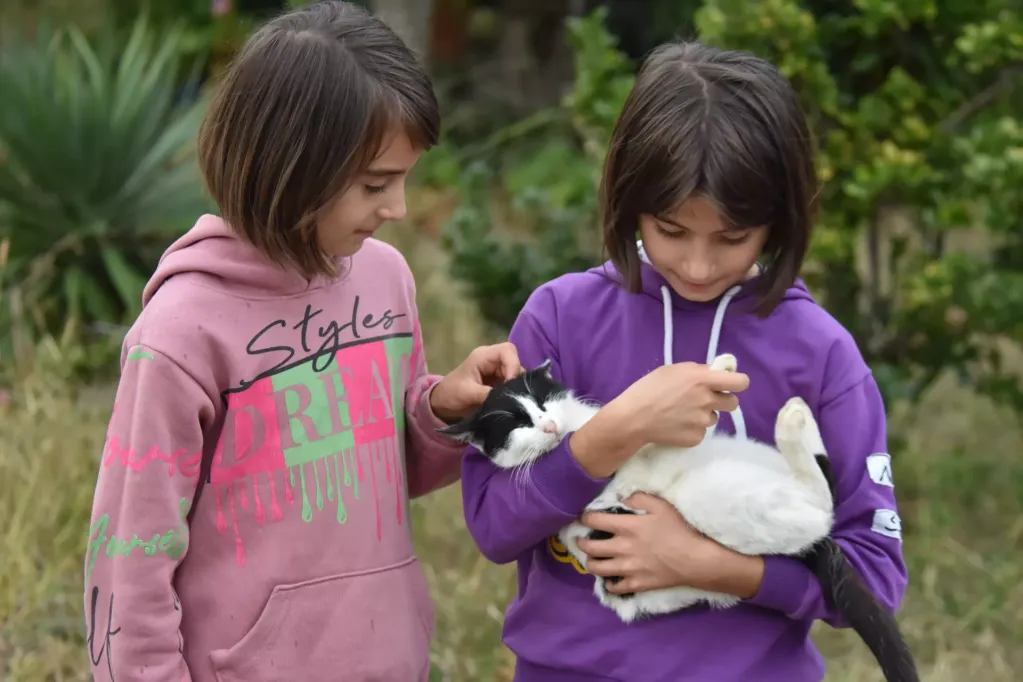
Press Release
19 April 2024
Launching Partnership for Clean Air in Georgia
The European Union brings together international and local partners to improve air quality and safeguard public health across Georgia. With EUR 4 million in EU funding, the four-year initiative builds on cooperation with the Ministry of Environmental Protection and Agriculture of Georgia, the United Nations Development Programme (UNDP), the World Health Organization (WHO), the United Nations Economic Commission for Europe (UNECE), and the Environment Agency Austria (UBA). The 2023 IQAir Index ranks Georgia 62nd out of 134 countries in terms of air pollution, with an average national pollution level considered 'unhealthy for sensitive groups.' This indicates that the annual average of fine particles in Georgia's air, PM2.5, exceeds the World Health Organization's air quality guideline by at least three times.The ambitious goals set for completion by the end of 2027 include strengthening Georgia's air quality surveillance network and enhancing national capacities in monitoring, modelling, and predicting air quality, along with its impact on public health. Furthermore, the project will assist Georgia in establishing a national reference laboratory and implementing efficient strategies to regulate industrial emissions and mitigate pollution in alignment with Best Available Techniques and international practice.The project will be carried out in cooperation with the National Environment Agency (NEA), the National Centre for Disease Control and Public Health (NCDC), and the Ministry of Economy and Sustainable Development of Georgia, fostering dialogue, sharing expertise, and implementing practical measures.The project participants and stakeholders convened on 19 April for an inception workshop to kickstart discussions on the implementation of this vital initiative. "By joining forces with our European and UN partners, Georgia will implement effective solutions that will lead to tangible improvements in air quality across the country," said Nino Tandilashvili, First Deputy Minister of Environmental Protection and Agriculture of Georgia.“The European Union supports Georgia in achieving its national environmental objectives and responding to environmental challenges, including the critical issue of air pollution. Our new initiative brings together governmental agencies and international partners to bolster Georgia’s air monitoring network and implement tools to improve air quality and protect people’s health. This will be important on Georgia’s journey to the EU,” said Nicholas Cendrowicz, Head of Cooperation at the Delegation of the European Union to Georgia."This partnership marks a significant step towards addressing the pressing issue of air pollution in Georgia. We aim to ensure cleaner air for all and safeguard the health and well-being of Georgian citizens," noted Sabine Machl, UN Resident Coordinator in Georgia."Our new initiative provides Georgia with technical expertise and focused support to enhance air quality. By bringing together international partners and local stakeholders across public, private, and civic sectors, we aim to create a comprehensive system addressing environmental, economic, social, and health aspects of air quality in Georgia," said Douglas Webb, UNDP Resident Representative a.i. in Georgia.About the ‘Air Quality for Better Citizen Health’ Project:The EU-funded EUR 4 million project ‘Air Quality for Better Citizen’s Health’ aims to improve air quality in Georgia and safeguard people’s health. The initiative is implemented by UNDP, WHO, UNECE, and UBA, in partnership with the Ministry of Environmental Protection and Agriculture of Georgia, the National Centre for Disease Control and Public Health (NCDC), and the Ministry of Economy and Sustainable Development of Georgia. More information about the project is available on the UNDP website.About the European Union:For over 30 years, the European Union has built a close partnership with Georgia, supporting its development through knowledge and experience sharing, expertise, innovation, and financial support. The relationship between the EU and Georgia is based on shared values of peace, freedom, democracy, human rights, and inclusive economic growth. More information about the EU's support in Georgia can be found at the EU4Georgia website.
1 of 5
Press Release
09 April 2024
Statement of the United Nations in Georgia
Recalling its statement of 26 February of 2023, the United Nations in Georgia expresses its profound concern with the re-introduction of the draft Law on Transparency of Foreign Influence in the Parliament of Georgia as it would impede the work of civil society and media and the essential contributions they make to Georgian democracy and society as a whole.Civil society organizations in Georgia have been at the forefront of delivering essential services to the most vulnerable and helping protect their human rights. Stigmatizing their work risks leaving persons with disabilities, internally displaced, minorities, older persons, women, youth and children, survivors of domestic violence and other people in need without effective assistance and support. The UN has been a trusted partner for over three decades, supporting the country’s development in line with Georgia’s own national priorities and assisting the people of Georgia together with all our local partners, including civil society and media.We recall the findings of the analysis conducted by OSCE/ODIHR in consultation with the UN Special Rapporteur on the rights to freedom to peaceful assembly and of association at the request of the Public Defender of Georgia, that the draft law falls short of a number of Georgia’s international obligations. Noting Georgia’s current membership of the UN Human Rights Council, we urge the Parliament of Georgia to withdraw this draft law and conduct broad, inclusive, and meaningful consultations with a wide range of stakeholders on relations between the state and civil society.In addition, the United Nations in Georgia expresses regret that the Parliament opted to use an expedited procedure to abolish mandatory gender quotas in parliamentary election lists. The temporary measure of a gender quota has been a long-standing recommendation to Georgia of the UN Committee on Elimination of Discrimination against Women to compensate for women’s systemic exclusion from political decision-making. The abolition of quotas is a step back for gender equality.We urge the Georgian authorities to take all the necessary steps to avoid actions that run counter to Georgia’s international obligations and that risk having a chilling effect on Georgian democracy.
1 of 5
Press Release
17 March 2024
Statement of the United Nations in Georgia regarding the draft law on amendments to the Tax Code of Georgia on tobacco excise tax
The UN in Georgia expresses its deep concern about the bill initiated in the Parliament of Georgia on March 4, 2024, with the purpose to cut excise taxes on certain tobacco products. This would unwind Georgia’s hard-won achievements in tobacco control, public health and sustainable development while continuing a troubling pattern of tobacco industry influence in policymaking. The initiative will harm the health of the population of Georgia, the country's economy, and only serves the business interests of the tobacco industry.Despite the important steps taken in 2017-2019 in the tobacco control legislation and the tax code, tobacco use in Georgia is still very high. About a third of the population consumes tobacco and according to the UNDP/WHO/NCDC Tobacco Control Investment Case study from 2017, tobacco-related direct healthcare costs and indirect costs due to premature mortality and disability and workplace costs exceeded 800 million GEL per year, equivalent to 2.4% of Georgia's GDP, with the number of deaths surpassing 11,400. Addressing this situation necessitates long-term and steadfast implementation of comprehensive and effective tobacco control policies.Tobacco control is not a trade-off between health and economic prosperity. On the contrary, health and well-being combined is a pillar of economic growth. Consequently, the proposed changes would not only harm health but also weaken the economy. Research carried out by the UN together with the Georgian government found that raising cigarette taxes could prevent GEL 2.2 billion in economic losses and healthcare costs over 15 years, and that for every 1 GEL invested in implementing an increased tobacco tax, the country economy would gain 221 GEL in return, without even factoring in even greater gains from increased income tax and cigarette tax revenue. There are few – if any – other policies available with such a spectacular return on investment, and a reversal of this policy would be a bad investment decision for Georgia.The proposed amendments contradict the policy of Georgia to reduce tobacco use: they will create a significant difference between the prices of different tobacco products, which will stimulate the return of cheap tobacco to the market, with increased consumption as a result.Proposed changes would distance Georgia from international obligations, such as the Framework Convention on Tobacco Control to which Georgia is a Party, and international best practices, while undermining the nation’s aspirations for EU accession. In Georgia, by 2019, with the longstanding efforts of the Parliament of Georgia, the Government and non-governmental and international organizations, significant tax increases and equalization resulted in a reduced market share of cheaper tobacco, an overall decline in the rate of tobacco use, and increased revenues for the country's budget. Since 2019, however, tobacco taxes have not increased,leading to more affordable harmful tobacco products. Import tax on tobacco raw materials is suspended until 2026. Also, taxes on tobacco in Georgia are significantly lower than in the European Union.The purported rationale for reducing the excise tax rate – ‘development of the branch and reducing illicit trade’ – do not survive scrutiny against evidence-based consensus nor the experiences of other countries, including Georgia itself. This amendment would be a second significant step backwards in tobacco control in Georgia, after the regrettable changes made last year in the tobacco control legislation regarding the postponement of plain packaging implementation and the total exclusion of heated tobacco products from that regulatory mechanism.We call on the Parliament of Georgia to reject the initiated change in the Tax Code and instead of reducing taxes, to increase them on all tobacco products equally. Georgia’s existing state policy, as well as relevant international acts, enable Georgia to reduce access to these fatal products, protect the health of the population and contribute to sustainable development of the country.
1 of 5
Press Release
07 March 2024
Invest in women. Accelerate progress.
This joint statement is issued by the United Nations system in Georgia, the Delegation of the European Union to Georgia, the Organization for Security and Cooperation in Europe, the Embassies to Georgia of Austria, Belgium, Bulgaria, Czechia, Denmark, Estonia, France, Finland, Germany, Greece, Ireland, Italy, Japan, Latvia, the Netherlands, New Zealand, Norway, Poland, Portugal, Slovakia, Slovenia, Spain, Sweden, Switzerland and the United Kingdom. On the International Women’s Day, we celebrate the accomplishments and contributions of women around the world, including in Georgia. We reaffirm our commitment to achieving gender equality and empowerment of all women and girls. At a time when the world is facing many crises, achieving gender equality is more vital than ever. Despite progress over the last decades, full equality is clearly off track. Globally, at the current pace of progress, achieving full legal equality may take up to 300 years.[1]In Georgia, women spend five times more time on unpaid domestic and care work than men.[2] This prevents women from pursuing their own professional success and from participating in political and public life. Women's economic activity rate (41.5%) lags significantly behind men's (64%).[3] Nearly half of women aged 25-34 are not working. Thousands of women have migrated to support their families through remittances. Violence against women and girls remains one of the most pervasive human rights violations. Women's voices are often excluded from political participation and decision-making. Despite the implementation of mandatory electoral gender quotas, women in Georgia hold only one-fifth of parliamentary seats and one-fourth of local council seats. Fifty-four percent of women candidates in Georgia have experienced physical, psychological, economic, or sexual violence and harassment during their election campaigns or political careers.[4] To build stronger, fairer societies, we must ensure that the rights of women are safeguarded and promoted, that women have an equal seat at the table and an equal voice and agency in economic, political and social life. Public and private investments are needed to drive women’s inclusion across all sectors of the economy and to actively address all forms of discrimination and violence against women and girls. Ensuring decent work for all women, including by closing gender employment gaps, ensuring fair wages, and formalizing women's informal work could significantly boost Georgia’s economy and lift women and their families from poverty. More support is needed for forcibly displaced women who have shown great resilience and taken on leadership roles in seeking solutions for their communities.We hope to see strong, meaningful commitment by all political parties to gender equality and women’s political and economic empowerment. We especially emphasize the urgent need to take concrete steps to eliminate violence against women in politics and strengthen efforts in combatting sexist hate speech against women politicians and women election officials. We must also support women’s rights organizations fighting against stereotypes and battling to make women’s and girls’ voices heard.On this International Women’s Day, let us all join forces in building inclusive communities and societies with the full participation of women and girls of all backgrounds.
-----------[1] Progress on the Sustainable Development Goals: The gender snapshot 2022. UN Women: https://rb.gy/9ku4b3[2] Time Use Survey, 2020-21, UN Women: https://rb.gy/oxenup[3] Women’s Economic Inactivity in Georgia, UN Women: https://t.ly/1_jEI[4] Violence Against Women in Politics in Georgia, UN Women: https://rb.gy/me1h23
-----------[1] Progress on the Sustainable Development Goals: The gender snapshot 2022. UN Women: https://rb.gy/9ku4b3[2] Time Use Survey, 2020-21, UN Women: https://rb.gy/oxenup[3] Women’s Economic Inactivity in Georgia, UN Women: https://t.ly/1_jEI[4] Violence Against Women in Politics in Georgia, UN Women: https://rb.gy/me1h23
1 of 5
Press Release
06 March 2024
Meeting on the economic rehabilitation of victims of violence held on the International Women’s Day.
At the initiative of UN Women, the French Embassy in Georgia and business associations, the representatives of Anti-Violence Network of Georgia and the private sector held a meeting attended by the members of Women’s Empowerment Principles (WEPs) signatory business organizations, the business federation Women for Tomorrow, the European Business Association and Chamber of Commerce and Industry France - Georgia (CCIFG).The French Ambassador to Georgia, Sheraz Ghasri, UN Resident Coordinator in Georgia, Sabine Machl, and the UN Women Country Representative in Georgia, Kaori Ishikawa opened the meeting. During the next part of the event, the participants discussed the importance of involvement of business organizations in the process of social and economic rehabilitation of the victims/survivors of violence.During the event, the participants discussed the current situation regarding the gender-based violence and victim support services in the country, the private sector representatives also shared successful initiatives implemented in their companies supporting social and economic capacities of the survivors of violence.It was highlighted at the event that an effective fight against gender-based violence requires the engagement of various sectors, including the government, non-governmental or donor organizations and businesses. It is the unified approach of this kind that leads to large-scale changes in social norms and behavior, and the private sector can play the role of utmost significance in this process, inter alia, by raising awareness and changing the stereotypical approaches, mobilizing resources, etc.‘The UN will continue to promote greater gender equality, gender responsiveness and non-discrimination. The road to healing for survivors of violence requires not only justice, but also a path back to social and economic stability. The private sector can help with providing employment opportunities, skills training, and a supportive workplace’ noted UN Resident Coordinator in Georgia, Sabine Machl‘Investing in women and girls benefits the whole society. That's why French President Macron has made women's rights a priority of our national policy and our diplomacy. In Georgia we have partnered with UNWOMEN and civil society organisations to protect victims of violence. With TBC Bank, we facilitate women entrepreneurs access to financing. Business has an enormous transformative power, to fight discriminations, end prejudices, advance equality. We are looking forward to working with every company and everyone in Georgia to advance the global cause of gender equality #FeministDiplomacy’ said Sheraz Ghasri, The French Ambassador to Georgia.The meeting was dedicated to the celebration of International Women’s Day on March 8th. It is noteworthy that this year the key message of the International Women's Day “Invest in Women: Accelerate Progress” highlights the importance of investing in women's potential and capacities, and calls upon everyone to join their efforts for achieving gender equality, building democratic communities and fair economies.The meeting was held within the framework of the UN Women’s project Strengthening Specialized Services for the Victims of Gender-Based Violence, generously funded by the French Ambassy.
1 of 5
Latest Resources
1 / 11
Resources
14 February 2024
Resources
25 January 2024
Resources
04 December 2023
1 / 11


